Fair Trade
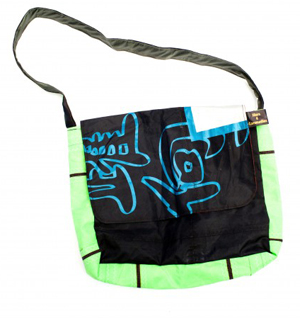
These bags are made in Dominican Republic by Haitian refugees, providing income for this group of marginalized people. Made from recycled kite-boarding kites, these bags are water resistant and nearly indestructible.
- Made from 100% recycled kite-boarding kites
- Available in lime green or bright red
- Dimensions: 16″ x 13″
- Strap length: 22″
- Price: $25.17 on sale (regularly $41.95)
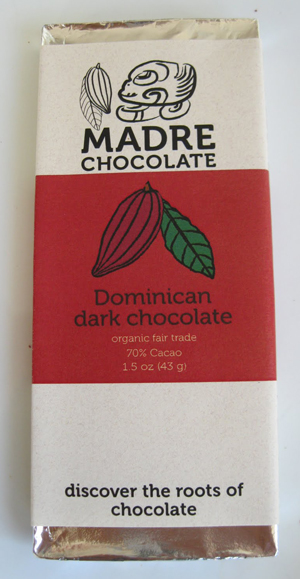
Dominican Single Origin Roasted Chocolate
Since we meticulously select and taste cacao from all over Latin America, you get the benefit of tasting the beans that have been grown and fermented in the best possible conditions, tasting the terroir, minerals and growing conditions that give each chocolate its own unique taste. Eating this chocolate from near the birthplace of chocolate is really returning to the Tierra Madre, the motherland of chocolate, with its deep, rich, flavorful notes. By helping pay the organic cacao farmers of CONACADO cooperative in the Dominican Republic a living wage, you can get this chocolate straight from the source that we have lovingly roasted, crushed, winnowed, ground, and molded into beautiful bars that retain all the intricate tastes of chocolate’s birthplace.
At Madre Chocolate we use a selection of traditional fruits and spices of the Aztec, Maya, Olmec, and Barra tribes of Central America that invented chocolate, to both celebrate their cultural heritage and bring you delicious original flavors that few have had the privilege of tasting…until now.
- $6.50 for a 1.5 oz. bar
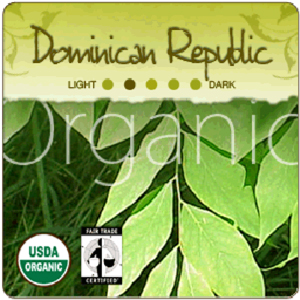
Organic Dominican Republic ‘Santo Domingo’ Fair-Trade Coffee
Often referred to as “The Treasure of the Caribbean,” this organic coffee from Santo Domingo is definitely one of the best kept secrets of the region. Many people in Santo Domingo make a living from the production of coffee. This is why strict measures are taken to ensure quality and standards are upheld. Most coffee is grown on small farms and is tended to by devoted farmers and their families who greatly benefit from its production.
The climate is ideal for coffee trees; the nearby ocean brings about cool trade winds and cloud cover that protects the trees from excessive sunlight, yet fostering a humid environment so the trees and the coffee cherries mature slowly. The unique tastes exhibited by the coffee come from the rich soil of the mountainous regions in which the trees are planted. Medium-bodied and well-balanced, this gourmet coffee contains a unique complexity in each sip.
- $11.95/lb or $42.50/5 lbs
Books
Fiction
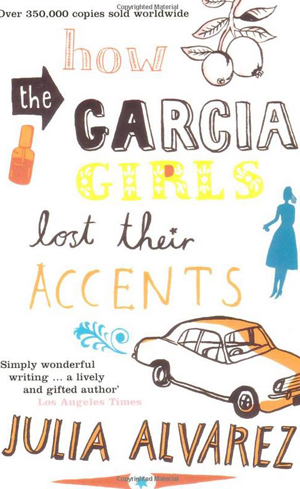
How the Garcia Girls Lost Their Accents
By Julia Alvarez
(Algonquin Books, 2010)
Dr. Carlos Garcia, his wife, and their four daughters belong to the “royalty” of Spanish Caribbean society, descended from the conquistadores. Their family compound adjoins the palace of the dictator’s daughter. So when Dr. García’s part in a coup attempt is discovered, the family must flee.
They arrive in New York City in 1960 to a life far removed from their existence in the Dominican Republic. Dr. Garcia has to find new patients in the Bronx. His wife must find herself in this strange new world. Meanwhile, the girls try to lose themselves—by forgetting their Spanish, by straightening their hair and trying to live up to their father’s version of honor while accommodating the expectations of their American boyfriends. Author Julia Alvarez’s first novel tells the Garcia girls’ most intimate stories about how they came to be at home—and not at home—in America.
“Poignant . . . Powerful . . . Beautifully capture[s] the threshold experience of the new immigrant, where the past is not yet a memory.” —The New York Times Book Review
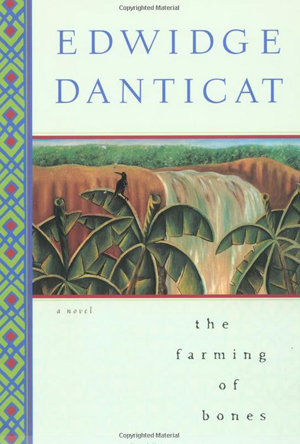
The Farming of Bones
By Edwidge Danticat
(Soho Press, 2013)
It is 1937 and Amabelle Désir, a young Haitian woman living in the Dominican Republic, has built herself a life as the servant and companion of the wife of a wealthy colonel. Amabelle and Sebastian, a cane worker, are deeply in love and plan to marry. But their world collapses when a wave of genocidal violence, driven by Dominican dictator Rafael Trujillo, leads to the slaughter of Haitian workers. Amabelle and Sebastian are separated, and she desperately flees the tide of violence for a Haiti she barely remembers.
This story of love and survival is an unforgettable memorial to the victims of the Parsley Massacre and a testimony to the power of human memory.
“Danticat … is a brilliant storyteller. Her language is simple, gorgeous, and enticing. Her perfect pacing and seamless narrative … make each character’s destiny seem inexorable.”
—Time Out New York
Non-Fiction
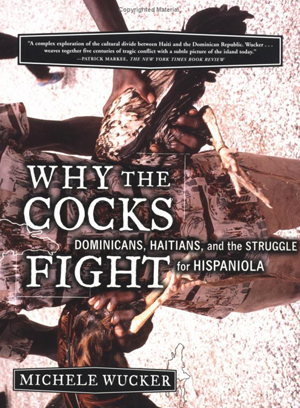
Why the Cocks Fight: Dominicans, Haitians, and the Struggle for Hispaniola
By Michele Wucker
(Hill and Wang, 2000)
Like two roosters in a fighting arena, Haiti and the Dominican Republic are encircled by barriers of geography and poverty. They co-inhabit the Caribbean island of Hispaniola, but their histories are as deeply divided as their cultures: one French-speaking and black, one Spanish-speaking and mulatto. Yet, despite their antagonism, the two countries share a national symbol in the rooster – and a fundamental activity and favorite sport in the cockfight. In this book, Michele Wucker asks: “Why do the cocks fight, and why do humans watch and glorify them?”
Wucker studies the cockfight ritual in considerable detail, focusing as much on the customs and histories of these two nations as on their contemporary lifestyles and politics. The author also highlights the factors in Caribbean history that affect Hispaniola today, including the often contradictory policies of the U.S.
“A complex exploration of the cultural divide between Haiti and the Dominican Republic. Wucker . . . weaves together five centuries of tragic conflict with a subtle picture of the island today.”- Patrick Markee, The New York Times Book Review
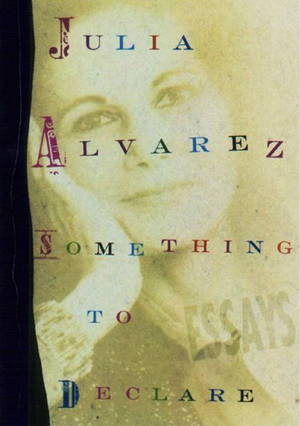
Something to Declare
By Julia Alvarez
(Plume, 1999)
The collection of essays offers Julia Alvarez’s dual meditations on coming to America and becoming a writer. In the first section, “Customs,” Alvarez relates how she and her family fled the Dominican Republic and its oppressive dictator, Rafael Trujillo, settling in New York City in the 1960s. Part Two—”Declarations”—celebrates Alvarez’s enduring passion for the writing life. From the description of Alvarez’s itinerant life as a struggling poet, teacher, and writer in “Have Typewriter, Will Travel,” to her advice in “Ten of My Writing Commandments,” Alvarez generously shares her inspirations with aspiring writers everywhere.
“Reading Julia Alvarez’s new collection of essays is like curling up with a glass of wine in one hand and the phone in the other, listening to a big-hearted, wisecracking friend share hard-earned wisdom about family, identity, and the art of writing.” —People
Films
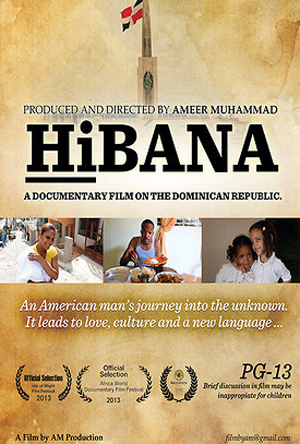
Hibana
(2012, 71 minutes)
Hibana is a documentary film about an American man that travels to the Dominican Republic. He does not know Spanish but is introduced to a Dominican woman and they fall in love. They each have two children, and now a new girl (Hibana) on the way. The audience learns the Dominican culture through following this very unique family as he learns Spanish and is introduced to an entire new way of life. The film has a dramatic twist that is sure to surprise all.
Filmmaker Ameer Muhammad is dynamic and focused. Less than one year out of film school, he produced this first featured film. Hibana has been nominated for best feature documentary in 2012 at the Bronze Lens Film Festival in Atlanta as well as the 2013 Africa World Film Festival in St. Louis and the 2013 Isle of Wight Film Festival in London.
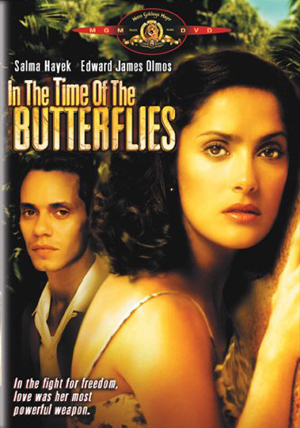
In the Time of the Butterflies
(2001, 95 minutes)
This film tells the true story of the three Mirabal sisters who, in 1960, were murdered for their part in an underground plot to overthrow the government. On November 25, 1960, the bodies of the three sisters were found near the bottom of a cliff on the north coast of the Dominican Republic. The official daily ‘El Caribe’ reports that it had been an accident, but it does not mention that a fourth sister lives. Nor does it mention the sisters’ fierce opposition to the General Trujillo’s dictatorship. This is their story: how Minerva started the tragedy by refusing Trujillo; how Patria became an opponent from the church itself; how Maria Teresa joined the revolution. And how they lost their wings, but not their courage. They were Las Mariposas – “The Butterflies.”
“With so much horror loose in this century, we forget some of the recent horrors of the last. Few people who vacation in the Dominican Republic today are aware of the brutal regime which flourished there – like a poisonous tropical flower – until recent times. This is a splendid depiction of it and of the struggle to overthrow it.” – www.imdb.com
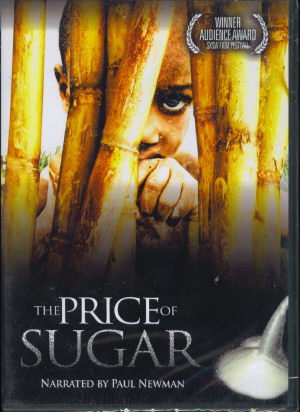
The Price of Sugar
(2007, 90 minutes)
Paul Newman narrates this documentary about the thousands of dispossessed Haitians in the Dominican Republic who work grueling hours harvesting sugarcane and one man’s attempt to help them secure decent working and living conditions. The film follows a charismatic Spanish priest, Father Christopher Hartley, as he organizes some of this hemisphere’s poorest people, challenging the powerful interests profiting from their work. This film raises key questions about where the products we consume originate, at what human cost they are produced and ultimately, where our responsibility lies.
“The movie, with its statistics about, say, how much sugar America imports from the Dominican Republic, is, in its way, effective. It’s been conceived and executed as an instrument of human rights and a tool of shame. But it’s the political controversy that’s at the heart of this movie – the contempt that one poor country feels toward its somewhat poorer neighbor.” – Boston Globe
Music
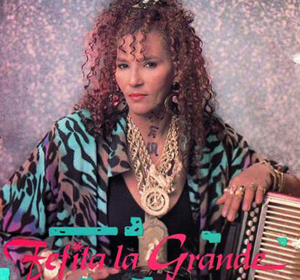
The first recognized female accordionist in the Dominican Republic was Fefita La Grande. When Fefita was a young girl she played accordion and was the main attraction everywhere she made an appearance. Fefita is from a region called San José Santiago Rodríguez, in the northwestern part of the Cibao. Her father, Sergio, was an accordionist too, and Fefita learned by watching him play. As time passed, Fefita grew famous playing on the radio stations and television. She has always been a leader in música típica (traditional music) and was the first person to bring merengue típico to Europe. She has won all kinds of prizes in music, including the Cassandra awards (the highest honor in Dominican music). She is known as “Fire Woman” because everyplace she plays “catches fire.” She has maintained one style of playing accordion her entire life, a style that only she can play.
Since the beginning, her concerts have always been sold out, and even after more than fifty years, she is still playing accordion with the same enthusiasm as the day she began. She continues to be as popular as ever.
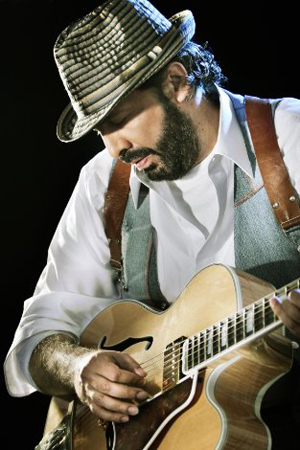
Guerra is a Dominican singer, songwriter and producer who has sold over 30 million records and won numerous awards including 15 Latin Grammy Awards and two Latin Billboard Music Awards. He won three Latin Grammy Awards in 2010, including Album of the Year. Most recently, he won the Latin Grammy Award for Producer of the Year in 2012.
He is one of the most internationally recognized Latin artists of recent decades. His pop style of merengue and bolero and Afro-pop/Latin fusion has garnered him considerable success throughout Latin America. He does not limit himself to one style of music. Instead, he incorporates diverse rhythms like merengue, bolero-bachata, balada, salsa, rock and roll, and even gospel. “Ojala Que Llueva Café” (“I Wish It Would Rain Coffee”) is one of his most critically acclaimed self-written and composed pieces.
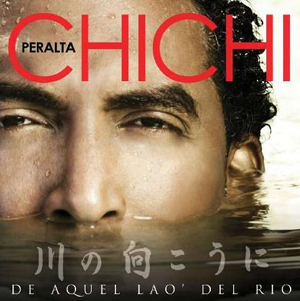
Chichí Peralta is a talented musician from the Dominican Republic. He is a master percussionist and brilliant at fusing tropical rhythms. In his recordings, Peralta combines diverse rhythms and styles like jazz, merengue, guaguancó and even Dominican bachata and vallenato. Born in Santo Domingo, the capital, Peralta’s musical career began at the age of four, when he built his first drum. The first album Peralta released was Pa’ Otro La’o, on which all the tracks were self-edited and produced. Many fans agree that his first album is his best work. In 2000, he released the album De Vuelta Al Barrio, which won the Best Merengue Album at the 2001 Latin Grammy Awards. In 2005 he released yet another album, Más que Suficiente, which was nominated for Best Contemporary Tropical Album at the 2006 Latin Grammys, and also won many other international prizes. In 2007, Peralta was declared the Dominican Republic’s goodwill ambassador. In 2009, he released his new album De Aquel Lao’ Del Rio which features a mixture of merengue and contemporary Japanese music. The album’s first single is “Amor Samurai”.
Peralta’s main professional work was as percussionist of the renowned group 4-40, led by Juan Luis Guerra. For eight years, Chichí Peralta performed in front of thousands of people throughout the world.
Books, Films, and Music recommended by Mariposa
Compiled by Lynn O’Connoll and Marcie Christensen
Dining for Women is a participant in the Amazon Services LLC Associates Program, an affiliate advertising program designed to provide a means for sites to earn advertising fees by advertising and linking to amazon.com
